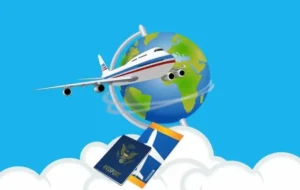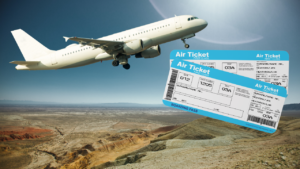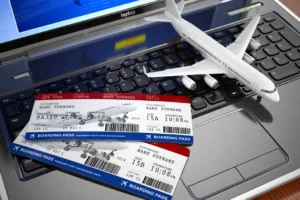What is the difference bewtween a fake flight ticket and flight reservation(dummy ticket)?
In the age of digital nomadism and frequent travel, the need for flight tickets or reservations often arises, especially for visa applications, visa interviews, or simply planning trips in advance. However, there exists confusion regarding the disparity between fake flight tickets and flight reservations, commonly known as dummy tickets. Let’s explore the nuances to understand the dissimilarities between the two.
Fake Flight Tickets:
Fake flight tickets, as the name suggests, are fabricated documents that mimic genuine flight tickets but lack authenticity. These tickets are typically generated using unauthorized or counterfeit means and hold no real value in terms of booking a seat on an aircraft. Individuals may resort to creating fake tickets to deceive authorities during visa applications or to show proof of travel plans, although doing so is illegal and can lead to severe consequences.
The creation and utilization of fake flight tickets not only violate airline policies but also breach legal regulations. Airlines have sophisticated systems in place to verify the legitimacy of tickets, and presenting a fake ticket can result in legal ramifications, including denied boarding, fines, or even legal prosecution.
Moreover, relying on fake tickets can jeopardize travel plans, leading to unexpected disruptions and financial losses. Authorities and airlines have stringent measures to detect counterfeit documents, and attempting to deceive them can tarnish one’s reputation and future travel prospects.
Flight Reservations (Dummy Tickets):
On the contrary, flight reservations, commonly referred to as dummy tickets, serve a legitimate purpose in travel planning. Unlike fake tickets, dummy tickets are generated through official channels provided by airlines or authorized travel agencies. They represent a temporary reservation for a specific flight without the necessity of immediate payment.
Dummy tickets are often used for visa applications or interviews to demonstrate a traveler’s intent to fly without the obligation of purchasing a ticket upfront. These reservations hold genuine booking codes and can be verified by airlines and immigration authorities. Once the visa is approved or travel plans are confirmed, individuals can either proceed with purchasing the reserved ticket or make alternative arrangements.
It’s crucial to understand that dummy tickets are not intended for deceptive purposes but rather for facilitating travel documentation processes. They provide a practical solution for travelers who need to present proof of onward travel without committing to a specific flight or incurring immediate expenses.
Key Differences:
Legitimacy: Fake flight tickets are unauthorized and illegal documents, whereas flight reservations (dummy tickets) are legitimate bookings made through official channels.
Verification: Fake tickets lack authenticity and can be easily detected, while dummy tickets hold genuine booking codes and can be verified by airlines and immigration authorities.
Intent: Fake tickets are created with the intent to deceive, whereas dummy tickets serve the purpose of providing temporary proof of travel plans.
In conclusion, the disparity between fake flight tickets and flight reservations (dummy tickets) lies in their legitimacy, verification, and intent. While fake tickets pose legal and ethical concerns, dummy tickets offer a practical solution for travelers seeking to fulfill visa requirements or demonstrate travel plans without committing to a specific booking. It’s imperative for travelers to adhere to legal and ethical standards when arranging travel documentation to avoid potential repercussions and ensure hassle-free journeys.









